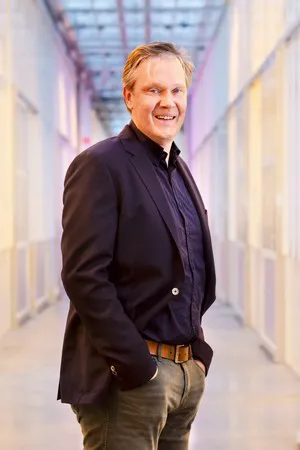 How do I keep my business future-proof? An interesting question to ponder around the turn of the year. Cor de Fijter is the sector leader of Horticulture at Flynth, and in his position, he has a 'helicopter view' of the sector. He shares with us his insights on how best to face the future as a horticultural company, both in the short and long term.
How do I keep my business future-proof? An interesting question to ponder around the turn of the year. Cor de Fijter is the sector leader of Horticulture at Flynth, and in his position, he has a 'helicopter view' of the sector. He shares with us his insights on how best to face the future as a horticultural company, both in the short and long term.
Turnover, sales, energy
In the short term, cost control is the motto: "Labour costs will rise, which is something you can't catch up with very quickly unless you invest in further automation of the growing and processing process. When energy prices rise, you then depend again on the position you have taken. Where you can particularly steer is on the turnover side: increase your turnover, or achieve more effective turnover."
You can steer turnover partly on supply by making adjustments in the cultivation schedule, moving with the seasons. "You can also make adjustments in sales agreements or gradually choose a different sales segment."
The 'E-word' was also finally dropped, reducing energy consumption is also an option available to growers in the short term. "This can be done by growing more per meter in the greenhouse or by using an extra screen cloth, dehumidifying, or a different type of lighting. You can also adjust your behavior as a grower by using Het Nieuwe Telen (The New Cultivation) and paying close attention to energy."
In the short term, understanding your cost price and liquidity position is particularly important.
Strong together
Cor also points to cooperating with other growers to be stronger together. "Within the growers' association, you could make agreements, or you could team up with a grower of another crop, to jointly market as one package."
Delayed costs
Another thing to watch out for: costs come in delayed. "Because there are expiring contracts and you have to enter into new ones at the new indexation, there is always a delay in cost increases. You could choose to stockpile bigger supplies, but that depends on your personal choice and capabilities."
Consumer cornered
Looking at how the situation will evolve in the near future, Cor zooms in on consumers. "Consumers, and the rest of us, are facing price increases on all sides. That can partly be compensated by choosing cheaper shops and consuming less, and on the other hand, consumers will ask their employers for more pay. Retail is then basically between a rock and a hard place; they cannot become too expensive for consumers, but on the other hand, they will also face cost increases, just like the individual entrepreneur."
But as a grower, how do you escape that split? "On one hand, there are growers who have signed long-term contracts, and they will be able to strengthen their position in 2023. And some will find it tougher because they have the more expensive products. But in the end, everyone will struggle as a result of the consumer story I just outlined. Everyone has to step up to the plate."
Energy transition
Looking a bit further out on the horizon again, Cor emphasizes the importance of fossil-free cultivation. "That energy transition is a process in which horticulture plays an important role in the form of flexible deployment of CHPs. In the Netherlands, such devices already provide 10-12 percent of sustainably generated energy."
The next step is to switch to alternative energy sources, including geothermal heat. "That is also economically interesting for growers. The Netherlands remains a good production country, in a good climate zone, with good control under glass. Only then will we get a new market balance, in which everything does become more expensive. Or there has to be a technical innovation that makes our high-quality products not only better but also more affordable."
All in all, Cor thinks that with sustainable alternatives such as geothermal heat, LED lighting, and, in the further future, hydrogen, Dutch horticulture can remain competitive in the new market equilibrium. "Covered cultivation under glass remains necessary to deliver good products, and in the Netherlands, we are champions of intensive cultivation under glass."
Positive outlook
Cor, therefore also sees a positive outlook for the long term. "By innovating and optimizing business processes, we have always moved forward," he says. And to face that promising future as a company, you have to make sure you have the momentum as an entrepreneur. "And to be future-proof, you also have to tell the right story with your product, which contributes to the health and a healthy living environment, and ensure availability of skilled staff."
For more information: 
Flynth
info@flynth.nl
www.flynth.nl
